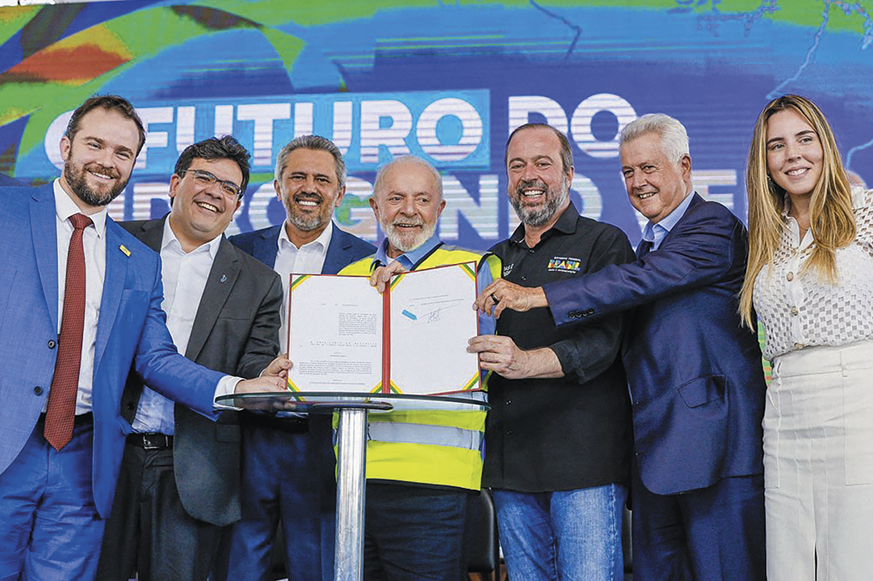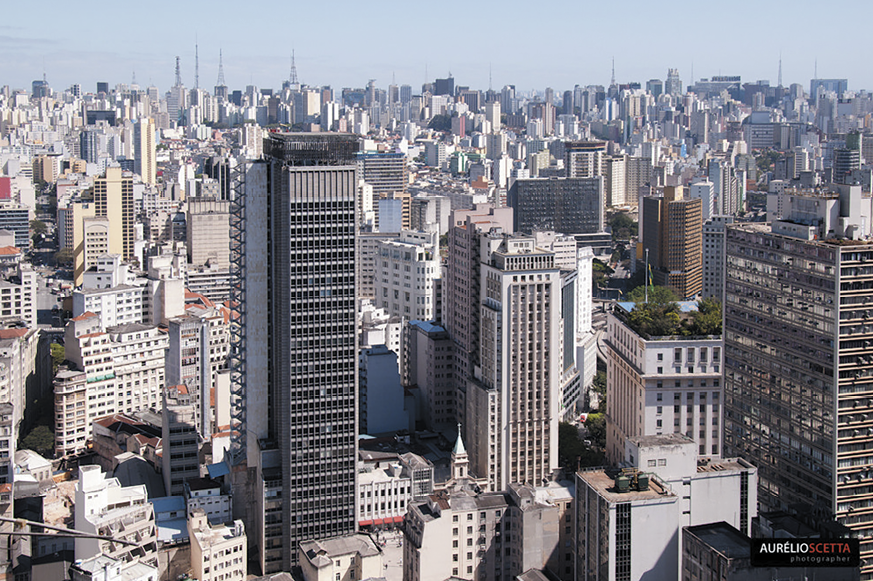- Home
- Media Kit
- MediaJet
- Current Issue
- Past Issues
- Ad Specs-Submission
- Reprints (PDF)
- Photo Specifications (PDF)
- Contact Us
- PRIVACY POLICY
- TERMS OF USE
![]()
ONLINE
![]()
ONLINE

A Diversified And
Sustainable Economy
Editors’ Note
Ambassador Maria Luiza Ribeiro Viotti presented her credentials to President Joe Biden on June 30, 2023. Before assuming her duties in Washington, Ambassador Viotti served as Chef de Cabinet to the Secretary-General of the United Nations (2017-2021); Under Secretary General for Asia and the Pacific at the Brazilian Ministry of Foreign Affairs (2016); and Ambassador of Brazil to Germany (2013-2016). Ambassador Viotti served on multiple occasions at the Mission of Brazil to the United Nations in New York and as Permanent Representative to the UN from 2007 to 2013. During her tenure, she led the Brazilian Delegation to the UN Security Council (2010-2011) and presided over the Council in February 2011. In addition to multilateral affairs, Ambassador Viotti worked in Brasilia and abroad in areas such as political affairs, trade and investment promotion, public diplomacy, and regional cooperation. She served as counselor at the Embassy of Brazil in La Paz (1993-1996). Ambassador Viotti holds a degree in economics and joined the Brazilian foreign service in 1976 after graduating from the Rio Banco Institute (Brazil’s diplomatic academy).

Brazil’s President Lula signs the legal framework
for green hydrogen into law
Will you highlight your career journey and what led to your role as Ambassador?
My career in foreign service has been a fulfilling journey marked by progressive responsibilities and the opportunity to work on global challenges. Each step has been a building block. I was driven by a deep-rooted passion for international relations and a desire to effect positive change. Over the years, I have had the privilege of serving in various capacities – working in trade promotion, regional political issues, sustainable development, and multilateral diplomacy, each offering invaluable experiences and insights. This experience was instrumental in my role as Brazil’s Permanent Representative to the UN, where I engaged with the international community on pressing global issues.
As Ambassador of Brazil to Germany, I worked to foster stronger bilateral ties between Brazil and Germany. The demanding role of Chief of Staff to the Secretary-General of the United Nations afforded me a unique perspective on the intricacies of multilateral diplomacy and the enormous challenges faced by the global community.
This journey has been marked by continuous learning, adaptation, and a commitment to public service. I am grateful for the opportunities I have had and for being able to count on extraordinary people who inspired and supported me along the way.
How critical is Brazil’s role in the global economy?
Brazil is the world’s eighth-largest economy – the second largest in the Americas – with dynamic agricultural, industrial, and service sectors and the capacity to contribute to solving global challenges such as climate change, the energy transition, and food security. Brazil plays a crucial role in international efforts to fight climate change and protect biodiversity. The country is home to 60 percent of the Amazon – the world’s largest tropical rainforest – and hosts approximately 20 percent of the world’s biological diversity. With the rate of deforestation in the Amazon on a consistent decline, Brazil sees itself on a clear path towards the goal of zero deforestation by 2030.
Brazil boasts the cleanest energy mix among the G20 countries. Approximately 49 percent of our energy and 90 percent of our electricity come from renewable sources. Strong growth in solar and wind power generation, together with the potential to become a major producer and exporter of clean hydrogen and sustainable aviation fuel, place Brazil in a privileged position in the global efforts to decarbonize the economy.
The agriculture sector in Brazil has seen decades of strong growth driven by increased productivity through technology and innovation. Brazil now ranks as the world’s largest producer of sugar, coffee, orange juice, and soybeans, the second largest producer of beef, and the third largest producer of poultry and corn.
Brazil’s manufacturing base is large and sophisticated, boasting both traditional and high-technology sectors, including pharmaceuticals, bionanotechnology, electronics, semiconductors, automobiles, agroindustry, and chemicals. Aircraft, pharmaceutical products, electrical machines, and IT services are a growing share of our exports.
As the current chair of the G20, and host to COP30 in 2025, Brazil has been working to advance the agenda on major global issues, such as fighting hunger and poverty, promoting food security, and accelerating the transition towards sustainable energy.
“Brazil is the world’s eighth-largest economy – the second largest in the Americas – with dynamic agricultural, industrial, and service sectors and the capacity to contribute to solving global challenges such as climate change, the energy transition, and food security.”
What do you see as Brazil’s strengths in attracting foreign investment?
The size and diversification of Brazil’s economy and its good performance over recent years; a large and growing consumer market; the country’s steadfast commitment to macroeconomic stability; and progress in economic reforms that improve the business environment are vital strengths enhancing Brazil’s attractiveness as an investment destination.
Another significant advantage is Brazil’s wealth of natural resources, including critical minerals essential for various high-tech applications, and an abundant clean energy supply.
Driven by the demand for advanced medical technologies and services, the country’s healthcare sector also offers substantial opportunities. Investors can count on a vast workforce of talented professionals essential to innovation and productivity.
Brazil benefits from a highly digitized economy, with advanced telecommunications infrastructure and widespread internet penetration. The digitalization of financial services in Brazil has been remarkable. Our country boasts a robust Fintech sector and universal adoption of digital banking, which enhances financial inclusion and streamlines financial transactions.

The skyline of São Paulo, Brazil’s vibrant financial center
and most populous city
What message would you want business leaders to hear about the opportunities that Brazil offers?
According to an OECD report released last May, Brazil ranked only behind the United States as the world’s leading destination for foreign direct investment (FDI) in 2023. This remarkable performance is a testament to the opportunities already mentioned and the Brazilian government’s efforts to provide adequate macroeconomic and regulatory conditions for investment. One of President Lula’s top priorities has been to create the conditions for economic growth combined with environmental sustainability, fiscal responsibility, and social inclusion. Efforts are underway to establish regulatory frameworks for the clean hydrogen industry, sustainable aviation fuels, offshore wind energy, and programs to strengthen the semiconductor ecosystem. They will enhance the attractiveness of investments in those sectors. Additionally, initiatives have been undertaken to promote the critical minerals industry and attract investments in Brazil’s traditional automotive sector so that it can compete in the field of fleet electrification.
To investors, macroeconomic factors, business environment, and fiscal policies are crucial considerations for capital allocation. At the same time, geopolitical and public health considerations have highlighted the importance of reliable suppliers and a diversified supply network.
For these reasons, Brazil stands out as a stable and attractive alternative for businesses seeking nearshoring strategies.
Will you discuss the importance of a strong relationship between the United States and Brazil?
A strong and close relationship between Brazil and the United States benefits our societies and has a positive impact on our region and beyond. Brazil and the United States are the largest democracies and economies in the Americas. We share values and the priorities of strengthening democracy, promoting and respecting human rights, and combating climate change. Our multifaceted and long-lasting relations cover a variety of areas, including trade and investment, energy, health, science and technology, defense, education and culture. High-level contacts and the convergence of public policy objectives have strengthened our cooperation on sustainable development, renewable energies, and workers’ rights.
The private sector is fully engaged in exploring opportunities for expanding trade and investment in traditional as well as new areas, such as clean hydrogen, sustainable aviation fuels, and carbon and methane management. Our countries are coordinating efforts to protect forests, combat environmental crimes, and promote sustainable agriculture and the bioeconomy. We are also working to advance a new Brazil-U.S. Energy Transition Partnership.
This year marks a significant milestone in our bilateral relations as we commemorate 200 years of friendship and collaboration between Brazil and the United States. In this bicentennial year, Brazil and the United States have before them a unique opportunity to leverage their shared values and interests in order to build an even stronger partnership, with tangible, long-term results for both societies and a positive impact on our region and beyond.
What would you say to young people in Brazil about the importance of public service?
Public service is essential to the functioning of society, by promoting the common good and ensuring that the needs of the citizens are met. Working in public service is a source of personal fulfillment that comes from the opportunity to make a positive impact on the lives of others.![]()
For more information regarding Brazil and business opportunities, please visit https://investinbrasil.com.br